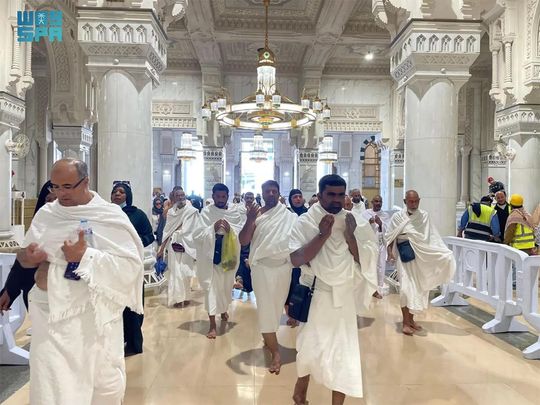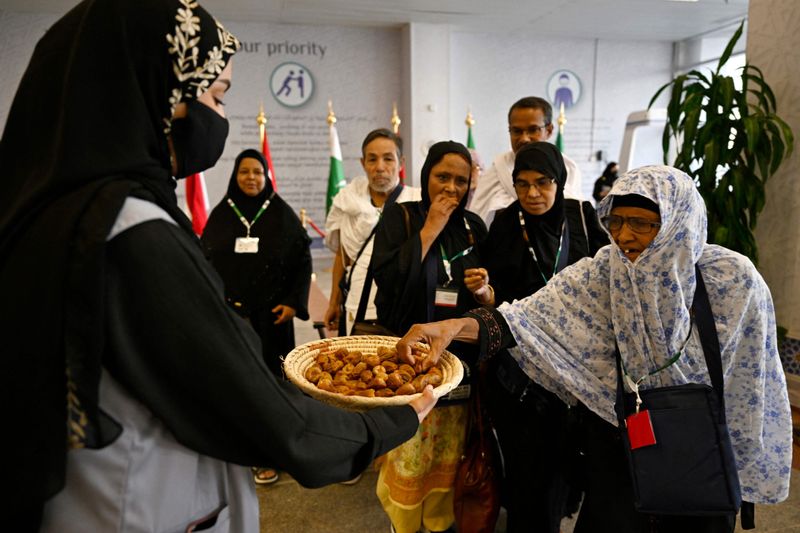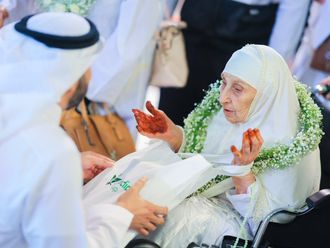
Cairo: First batches of overseas Muslims, arriving in Saudi Arabia to attend next month’s Hajj pilgrimage, cannot wait to go to Islam’s holiest site, the Grand Mosque in Mecca.
Upon arrival at the holy city, most of them have headed to the Grand Mosque where they were given an inspiring welcome.
The Presidency of Religious Affairs at the Mosque received the faithful with a package of Islamic programmes designed to enrich their experience, and handed them gifts, copies of Islam’s Holy Quran, and guidebooks published in different languages to facilitate their performance of Hajj rites, the Saudi news agency SPA reported.
“The presidency has enhanced the network of its religious services with inspiring initiatives aimed to maximise the experience of the Guests of God,” the presidency’s deputy chief Badr Al Sheikh said. He added that to this end high technology, digitalisation, artificial intelligence and translation are utilised to facilitate the pilgrims’ access to the services and disseminate moderate and tolerant Islam.

The first groups of pilgrims have started over the past few days arriving in Saudi Arabia from several countries in the run-up to Hajj, which is expected to commence this year on June 14, depending on the sighting of the new moon.
More than 2 million Muslims from across the globe are projected to attend upcoming Hajj.
Saudi agencies engaged in preparing for Hajj works anticipate record numbers of pilgrims after around 30 million Muslims from inside and outside the kingdom undertook Umrah or minor pilgrimage in the Grand Mosque, Islam’s holiest site, in Mecca during the past Islamic sacred month of Ramadan that ended on April 9.
Some 1.8 million Muslims from across the globe performed Hajj last year, marking the return of their numbers to pre-pandemic levels.
Hajj is one of Islam’s five obligatory duties. Muslims, who can physically and financially afford Hajj, have to perform it at least once in a lifetime.












